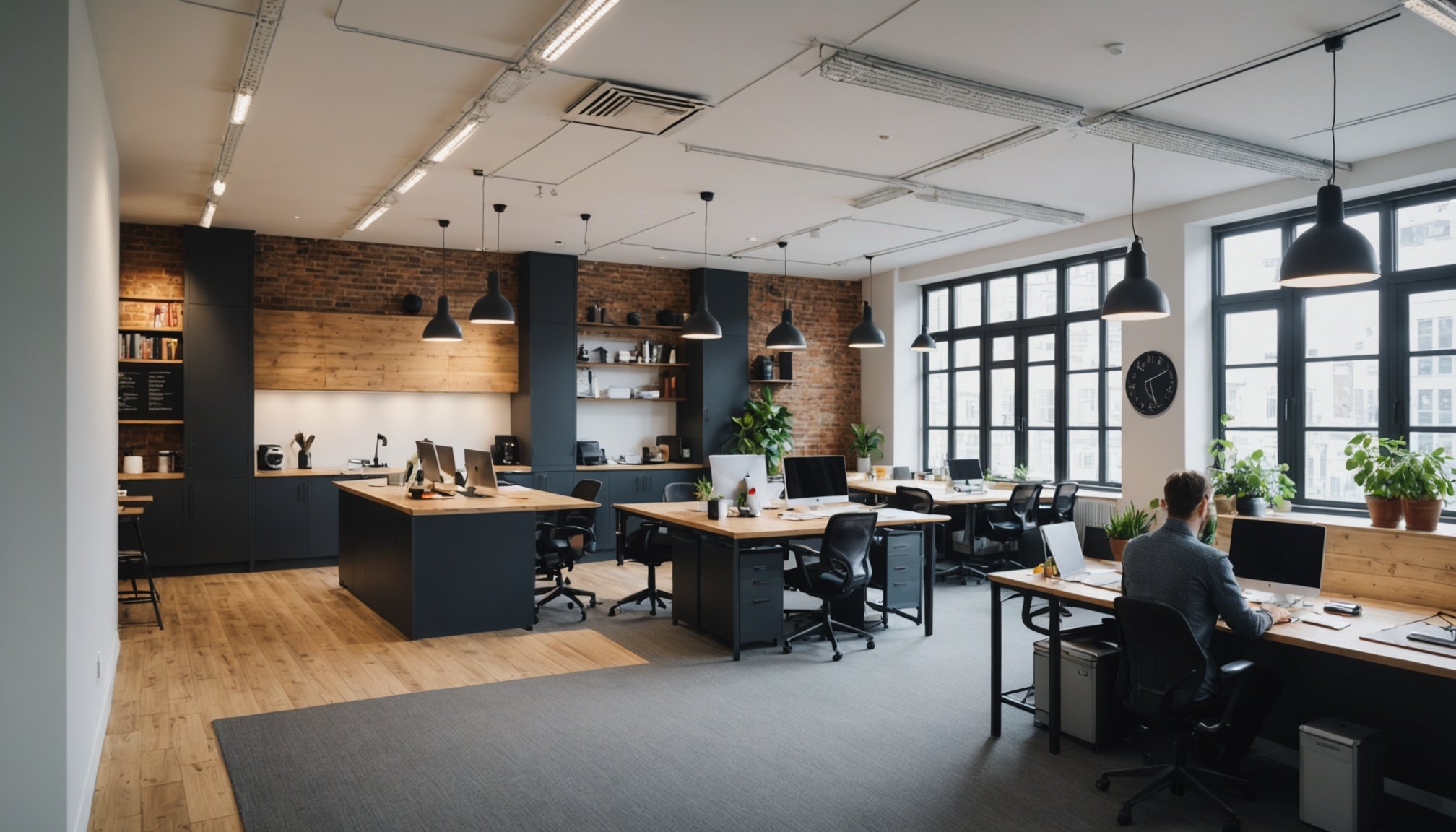Evaluating Location
Choosing a central location is crucial for business success. It should be easily accessible and strategically positioned to enhance operations. A well-located workplace can significantly boost productivity by reducing commute times and improving connectivity. Proximity to key clients and partners is a major consideration when evaluating potential sites. Being close to clients not only strengthens relationships but also enhances service delivery and responsiveness. This reduces lag times and encourages spontaneous collaboration meetings, fostering better partnerships.
Availability and reliability of transport links are also essential. The presence of efficient public transportation and nearby motorways ensures smooth travel for employees and visitors. Furthermore, local amenities like cafes, restaurants, and banks can influence daily operations. Such facilities offer convenience and can enhance employee satisfaction.
Also read : Key factors fueling growth: a deep dive into the uk real estate market essentials
In summary, the right location isn’t solely about geography; it’s about ensuring smooth daily operations through accessibility and proximity. Considering these aspects can ultimately make a difference in the efficiency and effectiveness of a business setting. A strategically chosen location aids in forging strong client relationships while catering to the essential needs of employees, defining the success of the organisation.
Analyzing Amenities Offered
In the competitive landscape of tech startups, the right amenities can significantly influence success. Essential facilities must include high-speed internet and state-of-the-art meeting rooms, which are fundamental in fostering productivity and collaboration. Not only do these elements provide a seamless operational environment but they also enhance communication efficiency among teams.
In parallel : Maximizing brand exposure: essential social media tactics for uk businesses to boost engagement
Tech startups also benefit from on-site facilities such as cafes, lounges, and printing services. These amenities support a balanced work-life environment by facilitating casual interactions and reducing the stress associated with everyday errands. Additionally, having cafes and lounges encourages interpersonal connections, driving creativity and innovation among team members.
Moreover, flexible workspace options are critical in meeting diverse business needs. Startups frequently evolve and their space requirements can fluctuate significantly. Flexible arrangements allow businesses to scale their operations swiftly, adapt to team growth, and even adhere to remote working necessities. For instance, a startup might necessitate a combination of open office spaces for collaborative projects, private offices for focused work, and hot desks for temporary needs. Thus, the right mix of amenities and workspace options can be pivotal in supporting the dynamic nature of tech startups.
Budget and Cost Considerations
When diving into financial planning for co-working spaces, it’s crucial to consider various cost factors. Co-working memberships often come with different pricing structures, each offering unique perks and limitations. Some plans might include access to conference rooms, high-speed internet, or free coffee, while others charge extra for these amenities. As you evaluate these options, balancing your needs against what’s included in the price can lead to effective budgeting.
Hidden costs often lurk beneath the surface. Common overlooked expenses might involve security deposits, maintenance fees, or pay-as-you-go services such as printing or locker rentals. By understanding these potential charges early on, you can prevent unpleasant surprises and maintain a well-managed budget.
Negotiating lease terms can also offer financial relief. Strategies include agreeing on longer terms in exchange for lower rates or requesting added services at no extra cost. Remember, flexibility can be your ally. Ultimately, maximizing value for money revolves around smart budgeting and strategic financial planning. Being proactive can ensure you get the most out of your co-working experience without stretching your finances.
Community and Culture
In the dynamic world of co-working spaces, community culture plays a pivotal role in fostering innovation and collaboration. These environments are more than just shared office spaces; they are hubs of creativity and interaction. The community culture encourages individuals and businesses to engage with one another, sparking ideas that might not emerge in isolation.
Networking opportunities are a key feature within these settings. By providing a platform for varied professionals to connect, co-working spaces enable the exchange of ideas and resources, leading to innovative projects. These interactions often result in unexpected partnerships and new ventures.
Successful collaborations frequently originate from co-working spaces. For example, tech innovators might collaborate with marketing specialists or financial advisors within the same space, leading to comprehensive product launches. Such collaborative endeavours illustrate the profound impact of a robust community culture on professional growth.
Moreover, the sense of belonging fosters a nurturing environment, where members support each other’s growth. This facilitates a continuous cycle of collaboration and networking, essential elements for thriving in today’s competitive landscape.
Flexibility of Contracts
Flexible contract terms offer significant benefits to startups seeking adaptability and room for growth. One major advantage is the ability to adjust space usage based on current needs, which allows businesses to scale operations without being locked into rigid agreements. This scalability ensures that as a company progresses, it can seamlessly move into larger spaces or downsize to optimize costs.
When considering scalability options, it’s crucial to evaluate business projections and anticipate future requirements. This approach allows for informed decisions that align with the company’s evolving demands. Businesses can benefit from flexible contracts that provide options such as adjustable lease durations and the ability to modify space use as needed.
Temporary versus long-term space rental considerations also play a significant role in strategic planning. Temporary rentals offer the flexibility to test market viability and adapt swiftly to changing circumstances. In contrast, long-term agreements may provide cost savings and stability for businesses with predictable growth trajectories.
In summary, understanding the advantages and considerations of flexible contract terms allows startups to strategically embrace scalability, ensuring they can effectively manage resources in alignment with their evolving business goals.
Comparing Popular UK Co-Working Spaces
Exploring co-working spaces has become pivotal for many startups in the UK, offering dynamic environments for growth and innovation.
Overview of Notable Co-Working Spaces
Across the United Kingdom, several popular co-working spaces have become hubs for creative and tech-driven professionals. For instance, WeWork in London offers state-of-the-art facilities, including advanced tech setups and modern meeting rooms. Its vibrant community plays a crucial role in fostering collaboration. Meanwhile, Huckletree focuses on innovation in tech and digital media, providing members with access to specialist events and workshops. Another standout is Spaces, which offers a flexible work environment with a focus on community and creativity, tailored to suit businesses of all sizes.
Case Studies of Successful Startups
Several startups have experienced significant growth within these co-working spaces. Notably, Startup A, by leveraging resources at WeWork, expanded its operations and successfully launched its product across Europe. Similarly, Startup B utilised Huckletree’s technology-centric ecosystem to develop critical partnerships that propelled its market presence.
Insights from Industry Experts
Industry experts predict a vibrant future for co-working spaces. They emphasise the need for spaces to continuously innovate and cater to specific industry needs. Trends point towards more specialised environments with tailored services, especially for tech startups, as these become more integral to their success.











